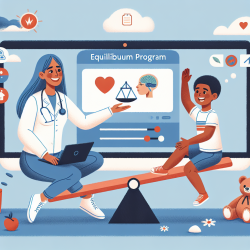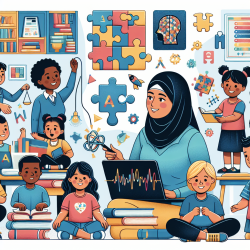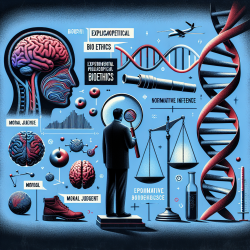As practitioners dedicated to improving outcomes for children with learning disabilities, it is imperative to rely on data-driven decisions and evidence-based practices. A recent study titled "Evaluating the Cognition, Behavior, and Social Profile of an Adolescent With Learning Disabilities and Assessing the Effectiveness of an Individualized Educational Program" provides valuable insights into the effectiveness of tailored interventions. This blog will explore how you can implement these findings to enhance your practice and encourage further research in this field.
Key Findings and Their Implications
The study utilized a comprehensive assessment approach, employing tools such as the Connors Parent and Teacher Rating Scales, Wechsler's Intelligence Scale for Children (WISC), the Vineland Social Maturity Scale (VSMS), and the Kinetic Family Drawing (KFD) test. The results revealed significant improvements in behavior, social, and cognitive functioning following a six-month individualized educational program (IEP) that involved parents as co-therapists.
Data-Driven Recommendations for Practitioners
Here are some actionable insights based on the study's findings:
- Holistic Assessment: Utilize a variety of standardized tools to assess cognitive, behavioral, and social profiles. This comprehensive approach ensures that all aspects of a child's development are considered.
- Parent Involvement: Engage parents as co-therapists in the intervention process. This study demonstrated that parental involvement significantly enhances the effectiveness of the IEP.
- Customized Interventions: Tailor the IEP to address the specific needs of the child. The study showed remarkable improvements when interventions were customized based on individual assessments.
- Regular Reassessment: Periodically reassess the child to monitor progress and make necessary adjustments to the IEP. The six-month reassessment in the study confirmed the efficacy of the interventions.
Encouraging Further Research
While this study provides a robust framework, it is essential to encourage further research to validate and expand these findings. Future studies could explore:
- Long-term Effects: Investigate the long-term impact of individualized educational programs on children with learning disabilities.
- Broader Demographics: Assess the effectiveness of these interventions across different age groups, socioeconomic backgrounds, and cultural contexts.
- Technological Integration: Examine the role of assistive technologies in enhancing the outcomes of individualized educational programs.
Conclusion
Implementing data-driven insights from research like this study can significantly improve the outcomes for children with learning disabilities. By adopting a holistic assessment approach, involving parents, customizing interventions, and conducting regular reassessments, practitioners can create more effective individualized educational programs.
To read the original research paper, please follow this link: Evaluating the Cognition, Behavior, and Social Profile of an Adolescent With Learning Disabilities and Assessing the Effectiveness of an Individualized Educational Program.










